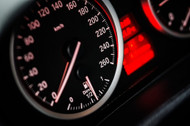Fuel Injection Cleaners: Do They Really Work?
25th Nov 2021
When browsing the aisles of your local auto parts store, you may come across fuel injection cleaners. They are typically sold in small bottles. There are dozens of different fuel injection cleaners, some of which are cost more than others. Regardless, they all claim to improve engine performance by removing buildups in fuel lines. If you've never used them before, though, you might be wondering if fuel injection cleaners really work.
Overview of Fuel Injection Cleaners
Fuel injection cleaners are solvent-based products that are designed to clean the fuel lines and other pathways through which fuel travels. All vehicles with a combustion engine, of course, require fuel. Combustion engines work by burning fuel and air. A device known as a fuel pump will send fuel from the tank to the injectors, after which the injectors will spray the fuel into the engine's intake manifold.
Over time, deposits can accumulate in the fuel lines and injectors that inhibit the flow of fuel. Both fuel lines and injectors have narrow pathways. Therefore, even small deposits can make it difficult for fuel to travel through them. Fuel injection cleaners consist of solvent-based chemicals that are designed to remove these deposits.
Yes, Fuel Injection Cleaners Really Work
For removing deposits from fuel lines and injectors, fuel injection cleaners absolutely work. They will dissolve the deposits left behind by spent fuel. If your vehicle is running lean -- or if you've experienced misfires when driving -- you may want to use a fuel injection cleaner. It's an inexpensive and effective way to remove fuel deposits.
Most fuel injection cleaners are added to the fuel tank. You don't need to access the engine bay, nor do you need to use any special tools. Just pop the cap off your vehicle's fuel tank and pour the fuel injection cleaner into it. Once added, the fuel injection cleaner will mix with the fuel. It will follow the same path as the fuel, meaning the solvent-based chemicals will travel through the fuel lines and into the fuel injectors.
Tips on Using a Fuel Injection Cleaner
Always read the instructions before using a fuel injection cleaner. Depending on the particular type, you may need to add the whole bottle to your vehicle's fuel tank, or you may only need to add a half bottle to it.
Rather than waiting until your vehicle's fuel injectors are already clogged, consider using a fuel injection cleaner once every 1,500 to 3,000 miles. Alternatively, you can use it whenever you get an oil change. Taking a proactive approach to using a fuel injection cleaner will promote a healthier engine.

